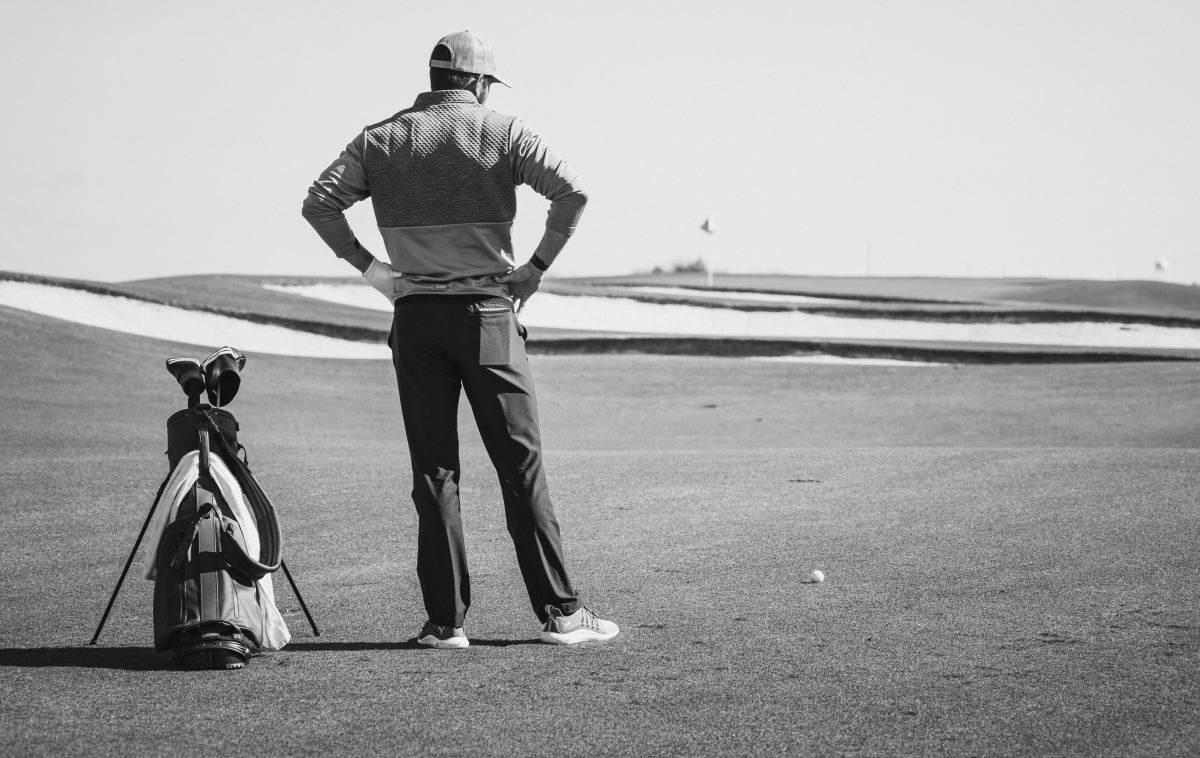Feelings VS Facts: Removing cognitive bias from your game

We have ALL been there.
“I pured that! How did that come up short?” versus landing where you wanted the ball to go. Or telling yourself that you NEVER hit a snap hook on the range, but accidentally hit a house on the 4th hole. *Casually waves to resident as you shamelessly run into their yard to grab your fresh-out-of-the-sleeve golf ball*
Feelings are important on the golf course and players should trust those emotions―BUT it is also important to have some actualities to back that up. After all, the ‘proof is in the pudding’.
The biggest distinction between feelings and actualities is that players feel while on the course and players reinforce actualities on the practice tee. Players also need to learn their actualities before they find a feeling that enforces a corresponding movement. Removing personal bias is one of the hardest things golfers can do, but when done can lead to incredible success. There are all sorts of ways players can do this. A major benefit to using Arccos is the ability to help members remove their bias, and letting the data (or actualities) speak for themselves.
Knowing exactly how far you TYPICALLY hit each club, is far more helpful than knowing how far you OCCASIONALLY hit each club (when the wind is behind you and you hit the downhill cart path and all of a sudden your 7i is looking like Bryson hit it). Smart Club Distances helps players of all levels remove their distance bias.

But what happens when we aren’t explicitly discussing distances? “I just cannot hit my 4 iron!” Relatable, but the actuality of that feeling is much more difficult to understand. The first actuality we need to know is how and why we have those errant shots. Too flat (under a proper swing plane)? Too upright (over a proper swing plane)? Toe-y? Off the heel? Focus on your actualities (be honest with yourself), and really tune in to how each swing feels. That way when you do hit the inevitable miss, you can troubleshoot effectively.
The first 'feeling' we need to work on is how to get through the round without wanting to snap any of your clubs. Feelings are more “Type B” and harder to define. Feelings are a swing thought that tells you to pause at the top of your backswing or to try to hit a certain ball flight. Ultimately feelings are playable and good but fleeting and can get you through your round here or there but more often than not, get in your way.
Actualities take time to change and are harder to get through. Changing your actual results means getting out of your comfort zone and going against muscle memory. For example take a player that struggles with contact and has a tendency to pull their putts. Fixing that takes time and lots of frustrations, but the consolation is that as an Arccos Member you can rely on data to be brutally honest with you.

If Arccos Strokes Gained Analytics is telling you that you lose the most strokes on your short game and the majority of your misses are long and right… listen to your data. Your extended range sessions might be better served around a practice or chipping green where you can focus solely on how you feel in those swings, your ball strike and the corresponding results. It might be more fun to be a range-rat hammering your woods on the range, but that isn’t where you are losing strokes on the course. Arccos Ambassador Trillium Rose previously pointed out, "it is more fun for players to practice what they’re already good at, but it's a coaches job to help them focus on the facets that will truly help them improve."
The SGA tips on the Arccos Overview screen are an easy way to glance at where your next practice session should be. But staying focused on your actualities will be critical to real change. If a high-level overview isn’t giving you enough clarification, it could be time to visit a pro so they can step in and provide their sage advice, after all going to someone who won’t be biased about your game is the best way to align your own mindset.